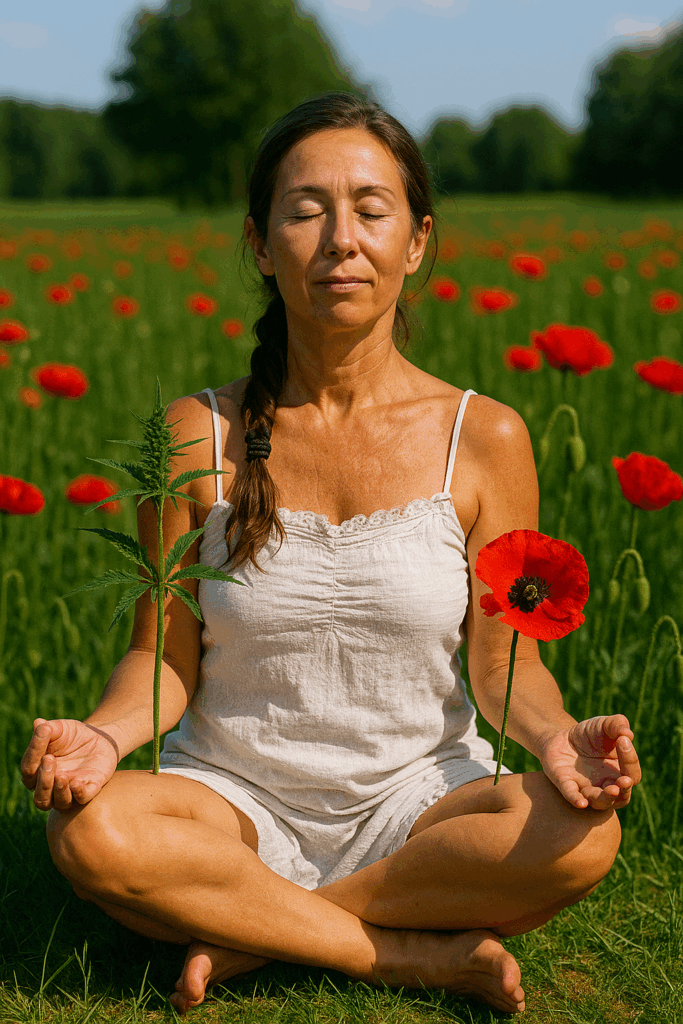Poppy and Hemp: Two Ancient Healers Turned Outlaws
Abstract
Poppy (Papaver somniferum) and hemp (Cannabis sativa) are among the oldest cultivated plants on Earth, used for millennia in traditional medicine, nutrition, and industry. Their healing properties are well documented across ancient civilizations from Sumer and Egypt to India and China. However, in the modern era, global legal systems—often driven by political and economic motives—have criminalized their use. This article examines the long-standing relationship between humans and these sacred plants, their scientifically recognized therapeutic value, and the consequences of their prohibition.
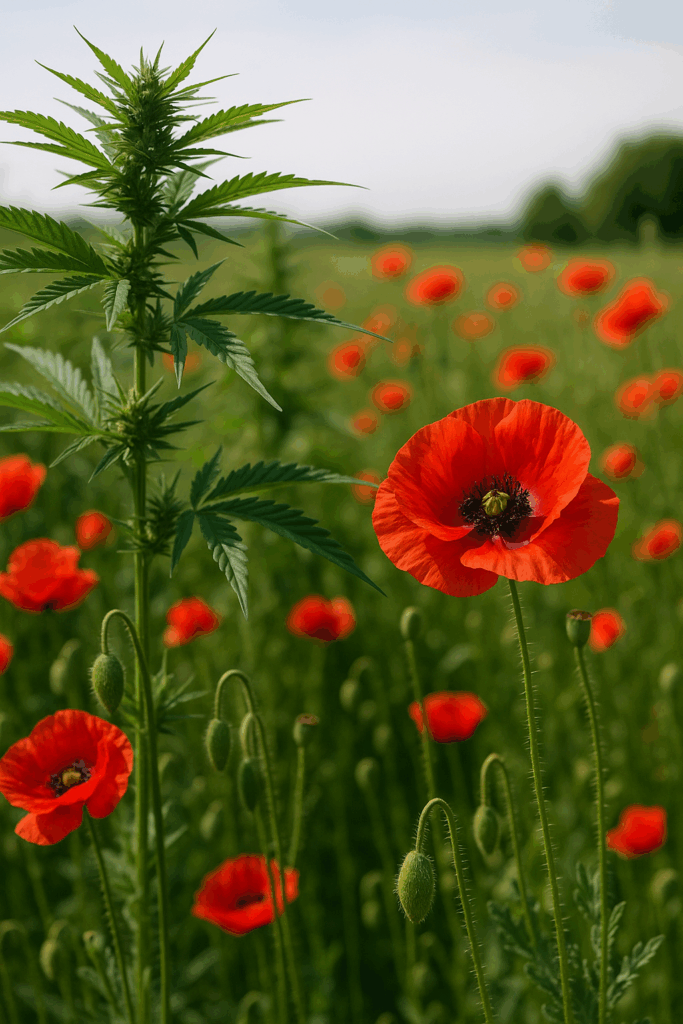
1. Introduction: Plants Older Than Empires
The poppy and hemp plants have been cultivated for over 6,000 years. Archaeological and textual evidence confirms their central role in medicine, spirituality, and economy across many ancient societies. While poppy has been revered for its analgesic and sedative qualities, hemp has been a nutritional powerhouse and a remarkably versatile industrial crop.
Despite this rich legacy, both plants have been subjected to harsh restrictions in the 20th and 21st centuries, particularly in the West. This shift has undermined centuries of traditional medicine and deprived societies of safe, natural remedies in favor of synthetic pharmaceuticals with more side effects and greater abuse potential.
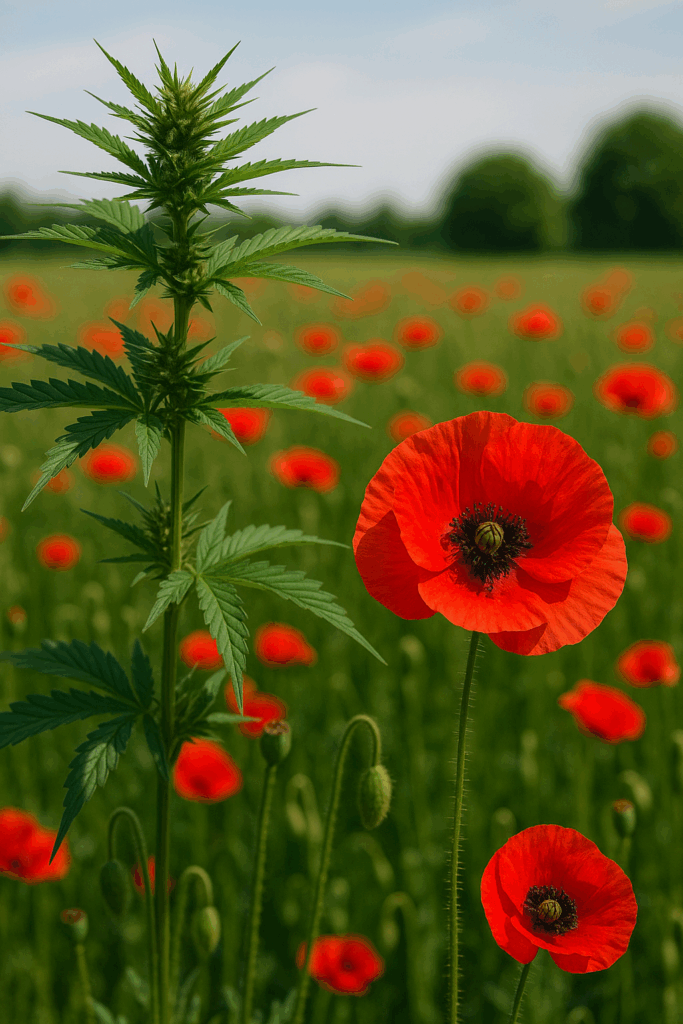
2. Poppy (Papaver somniferum): The Flower of Sleep and Relief
2.1 Ancient Use and Pharmacology
Poppy cultivation dates back to at least 3,400 BCE in Mesopotamia, where Sumerians referred to it as the “joy plant.” Ancient Egyptians, Greeks, and Romans used poppy extracts to treat pain, insomnia, and cough.
The active compounds in poppy latex are alkaloids such as morphine, codeine, and thebaine. These substances act primarily on the central nervous system by binding to opioid receptors, blocking pain signals and inducing euphoria or sleep.
2.2 Scientific Validation
Modern medicine has isolated these alkaloids into controlled drugs—most notably morphine, still used in hospitals globally for acute pain management. Research confirms their unmatched efficacy in pain relief, particularly for palliative and post-surgical care.
However, criminalization of poppy cultivation—even for medicinal or garden purposes—has erased cultural knowledge and created a black market dominated by synthetic opioids like fentanyl, which are exponentially more dangerous.
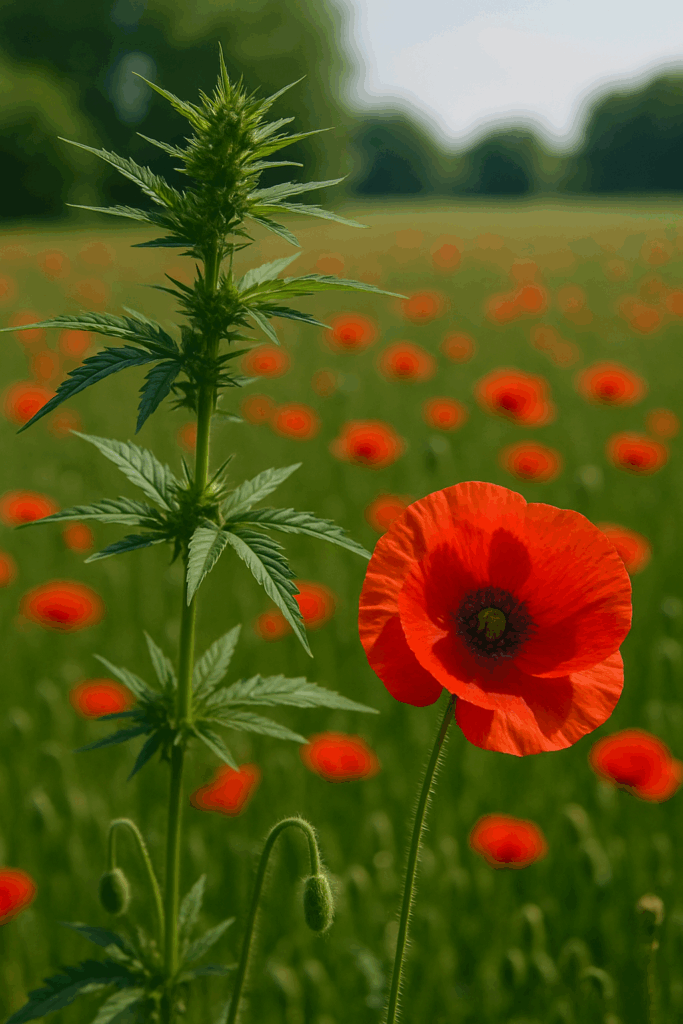
3. Hemp (Cannabis sativa): The Green Gold
3.1 A Plant with a Thousand Uses
Hemp is one of humanity’s first agricultural crops, grown for fiber, food, and medicine since at least 8,000 BCE. Ancient Chinese texts describe it as both a fabric and a healing plant. Ayurvedic and Unani traditions used it for pain, inflammation, anxiety, and digestive disorders.
The hemp plant contains hundreds of cannabinoids, most notably CBD (cannabidiol) and THC (tetrahydrocannabinol). While THC is psychoactive, CBD offers potent anti-inflammatory, anti-seizure, and anxiolytic effects without intoxication.
3.2 Scientific Rediscovery
Research in the last 30 years has unveiled the endocannabinoid system (ECS) in the human body—a network of receptors that regulate mood, appetite, pain, and immune response. Cannabinoids like CBD and THC modulate this system, offering therapeutic potential for conditions such as:
- Epilepsy (e.g., Dravet syndrome)
- Chronic pain
- PTSD and anxiety
- Multiple sclerosis
- Cancer-related symptoms
In 2018, the U.S. FDA approved Epidiolex, a CBD-based drug, for epilepsy, validating the ancient knowledge surrounding hemp’s healing power.
4. From Sacred Medicine to Controlled Substance
4.1 The Political Economy of Prohibition
The criminalization of poppy and hemp in the 20th century was not purely about public health. It was also about:
- Economic interests of pharmaceutical companies producing synthetic opioids and psychotropic drugs.
- Racial and political agendas, particularly in the U.S. where cannabis laws targeted marginalized communities.
- International treaties such as the 1961 UN Single Convention on Narcotic Drugs, which lumped cannabis and opium with heroin and cocaine, ignoring their medical value.
This shift disrupted traditional healing systems, undermined agricultural livelihoods, and initiated a multi-billion dollar “War on Drugs” that has failed to curb substance abuse while fueling incarceration rates and black markets.
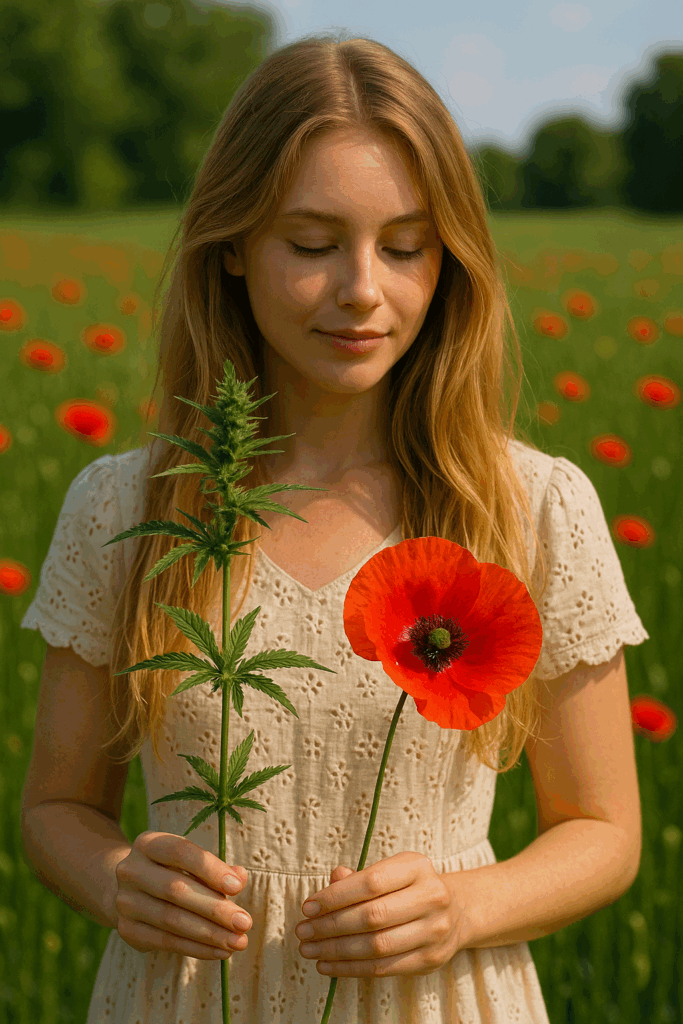
5. Reclaiming Plant Wisdom
A wave of scientific research and public advocacy is now reversing this narrative:
- Dozens of countries have legalized medical cannabis; some have even allowed recreational use.
- The World Health Organization has acknowledged the medical utility of cannabis and called for rescheduling it internationally.
- Controlled cultivation of medicinal poppy is legal in countries like India, Australia, and Turkey—models that could inspire broader reforms.
Simultaneously, the rise of plant-based and integrative medicine is reconnecting modern patients with ancient traditions.
6. Conclusion: Healing Should Not Be a Crime
The global prohibition of poppy and hemp is not just a legal mistake—it is a cultural and scientific injustice. These plants, rooted in the sacred pharmacopeias of nearly every ancient civilization, offer natural, effective, and holistic remedies. As modern science catches up with ancestral wisdom, it’s time for laws and public policies to reflect the truth: Nature is not the enemy.
Let us return to a world where poppy soothes the sick and hemp clothes, feeds, and heals the people—freely, respectfully, and wisely.
